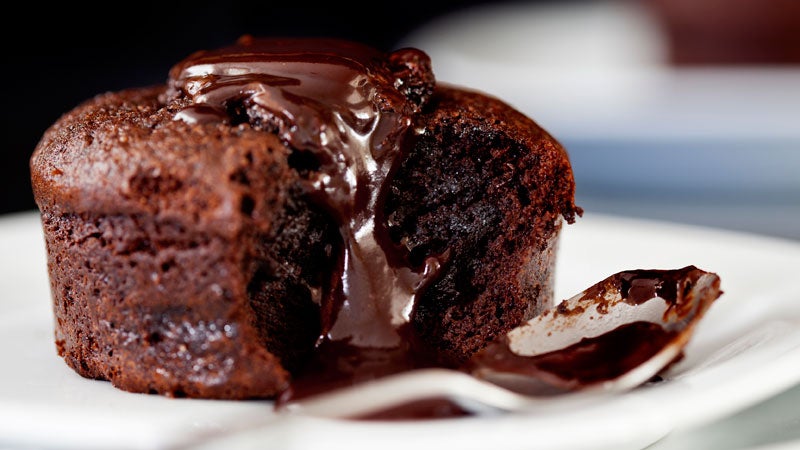Researchers have fingered several things as sources of sweet cravings.
Stress, caffeine, and lack of sleep can all over stimulate your HPA (hypothalamic-pituitary-adrenal) axis, the body’s stress response system. Researchers believe chronic overstimulation of that HPA axis can impair its function, leading to poor immune activity, memory, and metabolism.
Calorie-dense food like sweets, researchers believe, stimulate the body’s endogenous opioid system, which releases endorphins and has a pain-relieving, analgesic effect on the body. It may also help decrease the activity of the HPA axis, helping to calm that overstimulation. If you’re constantly craving sweets, it could be your body’s way of telling you to chill out, get more sleep, or cut the caffeine.
Of course, there are other reasons why you may crave sweets, particularly right after a meal when you’re presumably full. A poorly fueled workout is one of them.
“It’s recommended to have a small carbohydrate snack around 45 to 60 minutes before a workout,” says sports dietitian Marni Sumbal. She recommends eating 30 to 60 grams of carbs and five to 10 grams of protein and fat before a 60 to 90-minute workout. Try eating half a piece of pita bread with a teaspoon of peanut butter, or a small banana and a few nuts before getting sweaty.
During your workout, you should drink water, Sumbal says, but if you need a boost of energy, she recommends sipping on a sports drink. And do not skimp on a post-workout snack. Try downing 15 to 20 grams of protein and some carbs—a glass of chocolate milk works—right after your workout to maximize recovery.
“It’s normal to crave sweets after a workout because glycogen (digested carbs) is a primary, quick, immediate fuel during high intensity workouts,” Sumbal says. “The body is naturally asking you to replace what was burned during activity if you find yourself with heavy sweet cravings post workout.” That makes immediately post-workout a better time to indulge, if you desire.
If you’ve been ditching the carbs in your quest to hit your race weight, that craving may be your body telling you it wants them back. Conversely, if you’ve been eating mostly high-carb meals, that craving could come from a post-meal blood sugar crash best avoided by eating balanced meals containing protein, low-glycemic carbs like brown rice and black beans, and fat.
If none of this sounds like you—you’re a chill guy, you’ve been fueling properly, laying off the caffeine, and sleeping enough—your problem may simply be habit. It’s possible you’ve conditioned yourself to expect sweets after every meal by, well, eating sweets after every meal.
You don’t have to break that habit entirely, Sumbal says, just switch out those indulgences for other items that have more health benefits. “Naturally sweet foods like dates, figs, or fruit can also provide vitamins and minerals,” Sumbal says, which can aid your recovery.


